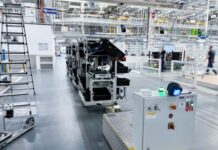With the eLearning market set to explode to about $280 billion by 2029, it’s clear that digital learning is shaking up traditional ways of getting clued up in pretty much every field out there. Everyone’s eager to learn new things and keep up with the latest, and now, people in the car business are really getting into eLearning. These online courses are not just spicing things up in the automotive world, but they’re also steering the industry toward greener, more sustainable practices.
Understanding the Key Drivers of Sustainability through the Role of eLearning in the Auto Industry
Forbes.com explains the 3 key drivers of sustainable change through the role of eLearning in the auto industry. The first big nudge towards a greener future comes from the government. It’s offering support to car manufacturers and also setting up some tough rules to ensure everyone’s playing their part in moving towards sustainability. Take the European Union, for example— they’re talking about banning cars that run on fossil fuels by 2035.
Next, we’ve got a shift in what everyone expects when it comes to going green. It’s not just the people making the cars, but also the customers buying them, the investors backing the companies, and the employees working in the industry.
And lastly, there are these big-picture trends that are reshaping everything and making eLearning a powerhouse for fostering innovation in the auto industry— all geared towards a greener planet.
Challenges and Their Solutions for eLearning Sustainable Automotive Industry Development
While eLearning plays a vital role in the automotive industry for taking the necessary steps towards a sustainable future, there are certain challenges, solutions, and opportunities that can help any auto company stay updated with the latest trends and be ahead of their competitors in developing a positive image in the minds of customers. GC-Solutions.net discusses the key challenges and their solutions for eLearning in the automotive industry while highlighting the opportunities for sustainable growth and development.
The major challenges are creating and imparting training while designing diversified learning objectives for sustainability and efficiency according to the diverse audience. The solutions to these challenges involve better adaptability of content according to the diverse audience profile while also leveraging technology to create training programs that make learning easier and fun. Moreover, product and process training can be tailored to address sustainability issues so that the same can be incorporated into industry processes.
Spotlight on SUV Sustainability Challenges and Innovations
SUVs are everywhere, aren’t they? SUVs are popular for plenty of reasons—space, safety, and that feeling of sitting up higher on the road. But according to the International Energy Agency, SUVs are known to emit about a third more CO2 than the average car. That’s quite the footprint and something to think about. So, how do we make these beloved vehicles greener? By pulling back the curtain on the newest efforts and innovations, we can get everyone from designers to drivers excited about pushing for a greener future for SUVs.
Driving Forward with eLearning Towards a Greener Automotive Industry
While addressing the challenges that dominate eLearning in the automotive industry, which pose a challenge in the adoption of sustainable practices, understanding the future trends of eLearning in the auto industry will not only help with streamlining business processes for minimizing wastage — but also enable manufacturers to reduce costs while optimizing their production plants. With nano and micro-learning modules for eLearning related to the automotive industry, businesses can teach employees how to reduce carbon footprint in the production of automobiles but also offer increasing opportunities for collaborative learning approaches where each individual can play their part in driving towards a sustainable future.
Lastly, the adoption of mobile learning as part of the eLearning program not only offers opportunities for activity-based learning — but also allows employees to think creatively about how to incorporate sustainability in the entire automotive value chain.
By embracing sustainable practices, companies not only enhance their bottom line but also position themselves to meet forthcoming regulatory standards, ensuring long-term viability in an evolving marketplace.












